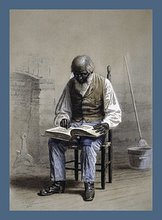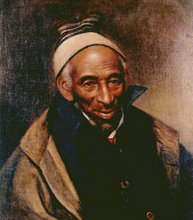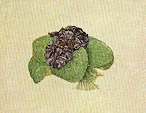Since I wrote the first blog in early September about Katrina, I have read the following books:
Their Eyes Were Watching God, by Zora Neale Hurston
Articles, by Zora Neale Hurston
The Sanctified Church, by Zora Neale Hurston
The Bluest Eye, by Toni Morrison
Zora Neale Hurston: A Life in Letters, by Carla Kaplan, ed.
Dust Tracks in the Road, by Zora Neale Hurston
The House Behind the Cedars, by Charles Chesnutt
The Anatomy of Racial Inequality, by Glenn C. Lowry
Sula, by Toni Morrison
In My Father's House, by Ernest J. Gaines
A Million Black Voices, by Richard Wright
"Fire and Cloud" and "The Long Black Song," by Richard Wright
Bloodline, by Ernest J. Gaines
In Search of Our Mother's Garden, by Alice Walker
Ralph Ellison, The Collected Essays.
A Lesson Before Dying, by Ernest J. Gaines
The Autobiography of Miss Jane Pittman, by Ernest J. Gaines
Nobody Knows My Name, by James Baldwin
Notes of a Native Son, by James Baldwin
Blues Dancing, by Dianna McKinney Whetstone
The Wedding, by Dorothy West
The Livin' Is Easy, by Dorothy West
Always Outnumbered, Always Outgunned, by Walter Mosley
The Richer, the Poorer, by Dorothy West
Gone Fishing, by Walter Mosley
The Street, by Ann Petry
The Man in My Basement, by Walter Mosley
Black Betty (partial), by Walter Mosley
The Fire Next Time, by James Baldwin
The Souls of Black Folk by W.E.B. DuBois
As I look at this list, I see it covers a wide variety. The book I loved the most was Their Eyes Were Watching God. I also loved all the stories in Bloodline by Ernest J. Gaines. I admired very much the other books that I read of his. I found The Anatomy of Racial Inequality to be very insightful and thought-provoking. I also much admired Always Outnumbered, Always Outgunned, by Walter Mosley.
I found James Baldwin to be the most painfully honest of all. I am not surprised that he or other African-American male writers feel compelled to leave the country and probably leave it in order to continue writing. The essays of Ralph Ellison were among the first books I read, and I learned a lot from them. However, compared with Baldwin, he seems to be one step removed from what he is writing about--as if he is a very astute observer. Either he has filtered life, or he is writing to a different audience or has a different relation to his audience than has Baldwin.
In general, and I will detail this later, I found the women writers to be disappointing. The Bluest Eye by Toni Morrison, I believe to be her first book, is an audacious book and a profound study of psychological disintegration. I was astonished by it. However, I positively disliked Sula, and am not sure what she is trying to say (have to read commentaries on it), and I had read Beloved previously and found it somewhat disturbing. She seems to be obsessed with death rather than with life and with women who murder their children. In direct contrast to her, it seems to me, are the books of Ernest J. Gaines. I am happy that his A Lesson Before Dying is required reading in many high schools, but I did not find this to be his best work. I found the message in his books to be blunt and to the point, but because the stories are written in such a simple and unegotistical way, one does not bristle in reaction to any didacticism in his books. I went to hear him read and answer questions at a bookstore, and the man is exactly as he seems: good, humble, and noble. He says he writes books about characters that he hopes will improve the characters of the readers--such an old-fashioned idea (it would seem in today's cultural environment), but everyone is starving for it.
There are many more books that I must read. I find that white people do not often write nonfiction about race unless they are aggressive racists. James Reston has written a book on the tragedy of the failure of integration. There are other books in the library by white writers on race or perceptions of race. Few white writers tackle problems.
We are thankful for William Faulkner and Carson McCullers. It must be so enraging to African-Americans that Faulkner could so poignantly and beautifully portray the manhood and humanity of African-Americans (especially in Go Down, Moses), but then hold views that were opposed to civil rights. However, it is impossible to ignore his portrayals. Carson McCullers' portrayal in The Heart Is a Lonely Hunter is astounding.
Very rarely, except in Intruder in the Dust, for example, or To Kill a Mockingbird, do we see portrayals of white people trying to deal with the problems of the racial injustice and enforced degradation.
Many books display very open and harsh anger towards all whites in general, with perhaps exceptions noted. More on this later.
Tuesday, January 24, 2006
Subscribe to:
Post Comments (Atom)



No comments:
Post a Comment